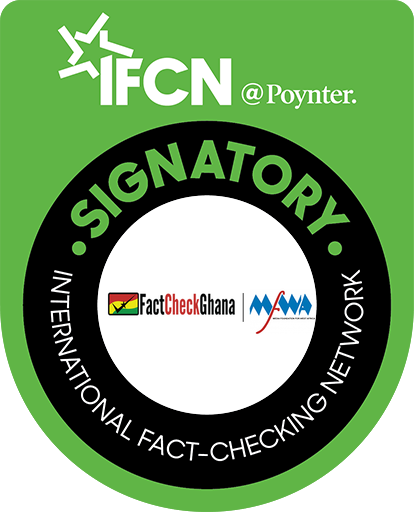November was a busy month as Ghana’s 8th general elections was taking shape with presidential candidates of political parties crisscrossing the country campaigning, outdoing each other in order to sell their policies to the electorates.
While at the North of Ghana campaigning, Flagbearer of the National Democratic Congress, Former President John Dramani Mahama, announced that his government, whose tenure ended in 2016, started what has become the flagship programme of the governing New Patriotic Party (NNP), Free Senior High School Policy
“We started the programme and the NPP came and continued it. Unfortunately, the implementation has been very poor, and so it ended us in double track,” Mr. Mahama stressed.
Just a day after his announcement, President Akufo-Addo, who was the New Patriotic Party’s (NPP) candidate for the three immediate past general elections disagreed.
“I heard something yesterday that surprised me. The former President stated that my promise to start the free SHS policy was false and just a ploy to deceive Ghanaians. He was strongly against the policy and stated that if he had the money to implement that policy, he will use it for something else. He also said it will take Ghana years to implement it but now he is saying he started the Free SHS, and it’s surprising,” President Akufo-Addo said.
These claims by the leaders of the two main political parties revived discussions on who initiated Ghana’s Free Senior High School programme on both the legacy and social media.
The team at Fact-Check Ghana undertook a thorough research to present the facts surrounding this policy and its implementation.
The team established that on September 17, 2015, a Progressively Free Senior High School Policy was launched by Former President John Mahama in Otuam, Ekumfi, in the Central region with the aim to absorb fees for Day students, at least for the start. It was expected to among others cover about 320,000 students across the country. The cost of the program was pegged at GHS 12.2 million.
Aside the numbers, the scholarship was also to cover examination, library, entertainment, Students Representative Council (SRC) dues, science development, science and mathematics quiz, sports, culture, ICT and co-curricular.
However, on September 12, 2017, barely a year after becoming a President, Nana Akufo-Addo launched one of his most talked about programmes – the Free SHS Policy.
Starting with about 400,000 students in 2017 with a seed money of 486 million Ghana cedis, about 1.2 million pupils have benefited from the policy so far according to the Education Ministry.
Government said the cost covered furniture, physical education kits, school uniforms, clothes, meals textbooks and house dresses among others.
The verdict on the claim of “who really started Free SHS” as concluded by the team was that former president Mahama introduced a policy he dubbed “Progressively Free Senior High School” which covered a number of public day schools in Ghana whereas President Akufo-Addo started the Free Senior High School policy which covered all public senior high schools in Ghana.
While at it, issues about another flagship programme of the NPP government, Planting for Food and Jobs Programme, came under the radar.
In a television interview discussing the Agricultural sector performance of the governments formed by the two parties in the past eight years, the Deputy Minister for Agriculture, responsible for Horticulture, Kennedy Osei Nyarko, said that the Government of Ghana is the sole financier of the incumbent government’s flagship program, Planting for Food and Jobs.
Fact-check Ghana has verified the claim and rated it Completely False.
Through thorough research, the Fact-Check Ghana team adduced evidence that in February 14, 2017, the Minister for Agriculture, Dr Owusu Afriyie Akoto, granted an interview with the Daily Graphic and said the Canadian and Korean government had extended 135 million and 9 million dollars respectively to execute the Planting for Food and Jobs programme.
“So far, we are getting some good responses. The Canadian government has offered 135 million Canadian dollars to support the programme. The Korean government is supporting all the districts in the Central Region with $9 million and the Chinese government is thinking about giving us fertiliser to support the programme. We are still talking to our development partners,” Dr. Akoto said.
A week later, President Akufo-Addo, delivering his maiden State of the Nation Address, further confirmed that the Canadian Government had provided Ghana with a loan facility to stimulate the programme.
Further, ahead of the elections, conversation about the impact of corruption on the country had emerged, with the communicators of two major political parties, the governing NPP and the largest opposition NDC labelling each other as being more corrupt or having comparatively worse corruption record.
Fact-Check Ghana Team intercepted the conversation which had pervaded both the political and media space. The team noted that while it may be subjective to measure who has fought corruption better among the two leading political parties, the Corruption Perception Index (CPI) reports released by Transparency Index annually provides a better insight into how citizens perceive the presence of corruption in public office in a given year under a specific government.
Below, fact-Check Ghana presented the tabular CPI performance of the governments of both parties.
| Year | Rank | Score |
|---|---|---|
| 2013 | 63/198 | 46 |
| 2014 | 61/198 | 48 |
| 2015 | 56/198 | 47 |
| 2016 | 70/198 | 43 |
Source: Transparency International
Year Rank Score
2017 81/198 40
2018 78/198 41
2019 80/198 41
2020 NA NA
Source: Transparency International
Noting that the CPI uses a scale of 0-100, where zero is highly corrupt and 100 is very clean, the team concluded that the worst CPI score (the highest corruption perception) under the Mahama-led government is better than the best CPI score (the lowest corruption perception) under the Akufo-Addo-led NPP government.



